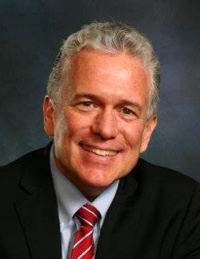Areas upon which a mortgage expert witness may consult or testify
There are a number of situations where a mortgage* expert witness may be asked to consult or testify. The following are seven common scenarios:
- Structure of lending or brokerage entities and borrower relationships: licensing of entities or individuals; compliance with licensing laws and regulations; types of relationships between borrowers and lenders or brokers; impact of relationships, licensing or entity structure on aspects of the loan transaction; agency and fiduciary relationships; matters related to funds held in trust
- Lender or broker conduct during the origination process: matters relating to alleged predatory lending; unfair business practices; misrepresentation; the existence of or breach of fiduciary duty; procedures followed by loan originator in obtaining, qualifying, approving, documenting or closing the transaction; standard of care or duties of lenders or brokers in originating loans; borrower’s ability to understand loan transaction and terms.
- Disclosure and documentation issues: required documentation, disclosures and notices in loan transactions and their impact on the parties to the transaction; disclosures required under different licensing schemes; borrower or investor disclosures; in the case of consumer lending, documentation and practices related to RESPA, TILA, Section 32, FC 4970, and other laws.
- Loan servicing, modification and foreclosure: lender or servicer’s conduct in servicing the loan; responding to or dealing with loan modification requests; dealing with delinquency or foreclosure; compliance with California’s “Homeowner’s Bill of Rights,” or “HBOR.”
- Investors in trust deeds: for private or individual trust deed investors, matters related to investor suitability for the proposed investment; disclosures made to investors; investment provider’s relationship to investors; standard of care for providers/organizers of trust deed investments in selecting, underwriting and closing trust deed loans, documentation of loans and documentation of investor’s participation in loans; investor issues with servicing of the loan.
- Institutional investors in trust deeds: issues concerned with investor’s relationship to originator or broker; conduct of investor and originator or broker during and after origination of loans; originator or broker/lender agreements; “buy-back” requests; originator or broker representations and warranties.
- Loan fraud: matters concerning conduct of perpetrators of fraud; matters related to the relationships of various parties in the transaction; conduct of those parties, which may include escrow holders, title insurers, mortgage brokerage or lending companies and their loan officers, appraisers, real estate brokers and other parties involved in the sale or financing of property.
As mentioned in the article, “Common types of mortgage experts,” there are six types of professionals who focus on mortgage litigation issues. It is best to choose the expert who is most familiar with your specific legal situation, whether that be lending liability, mortgage fraud, or another scenario.
Joffrey@asksw.com
(818)635-1777


